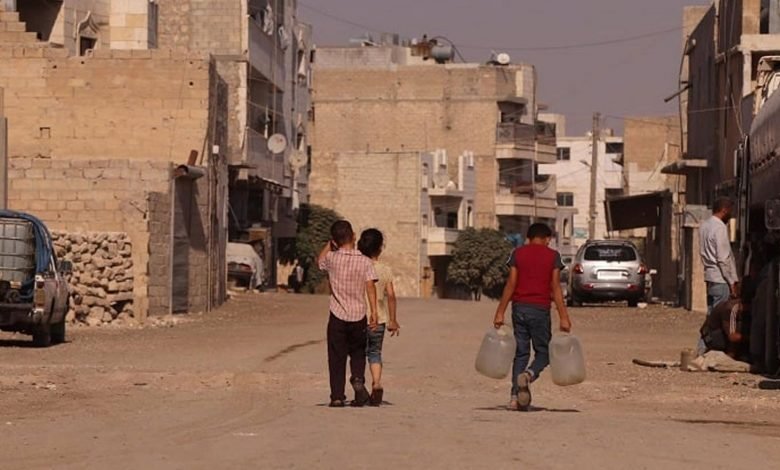Syria Monthly Report
June 2023
International
Syrians attempt to flee new conflict in Sudan
South & central
Syrian government expects bumper wheat harvest
Depreciation, inflation and low wages as 90% of Syrians living below the poverty line
New round of settlements in Dar’a attract high turnout
Northeast
Administration students seek government qualifications
Activists stand against narcotics traders in Ar-Raqqa
Northwest
Seasonal water shortages in Al-Bab city
Truck drivers protest in northern Aleppo
Summary
Displaced Syrians in Sudan, in the face of civil war, are scrambling to leave. Many have made their way to Port Sudan on the coast, where they are trying to find ways out. One option has been repatriation flights, while some have paid thousands for commercial flights. Others who cannot return to Syria, and are unable to travel to third countries have resorted to paying smugglers to take them into Egypt, at great risk to themselves.
The bumper wheat harvest of 2023 has failed to translate into bumper profits for farmers. High production costs, coupled with a low government purchasing price and increased transportation fees mean farmers are facing a loss. Food prices in general in government-held areas continue to increase, with the usual suspects of depreciation, supply problems, import restrictions and poor economic policy all contributing factors.
In Dar’a, government security forces are implementing a new round of settlements, which have attracted an unexpectedly high turnout – the majority of settlement joiners have been civilians who seek military service deferrals and travel permissions. Local grievances, violence and general distrust in the government persist however, undermining the purpose of settlement procedures to promote reconciliation and stability.
Students in the northeast have been traveling to government-controlled areas to take exams. Qualifications awarded by the Autonomous Administration remain unaccredited, both in Syria and abroad; for students to secure recognized qualifications they must pass exams based on the government’s curriculum. This however is proving increasingly costly, and challenging.
Narcotics traders in Ar-Raqqa are being exposed by a social justice group on Facebook – this has led to several arrests by the Internal Security Forces. Civil engagement in security is a positive step with the Syrian Democratic Forces, who have historically reacted harshly to civilian activism.
Seasonal water shortages are happening again in Al-Bab city, with wells supplying the city drying up in the summer. There are two solutions to the long-standing problem; one is to rely on the Syrian government to restore water pumping to the city (unlikely), and the other is to build new infrastructure from the Euphrates, which will take time. Residents are unlikely to see their struggles alleviated any time soon.
Truck drivers who have seen their jobs eroded are protesting across Turkish-backed areas. Turkish trucks and drivers are now allowed to transport produce into Syria, instead of unloading and reloading into Syrian trucks at the border. Although ostensibly pragmatic, this decision increases dependence on Turkey and puts the truck-driving industry in northern Aleppo at risk, in an area where both industry and job opportunities are already extremely limited.


